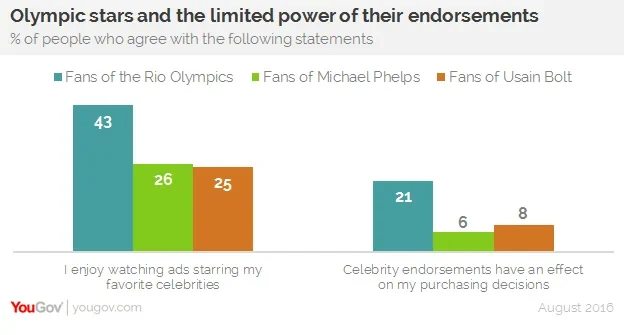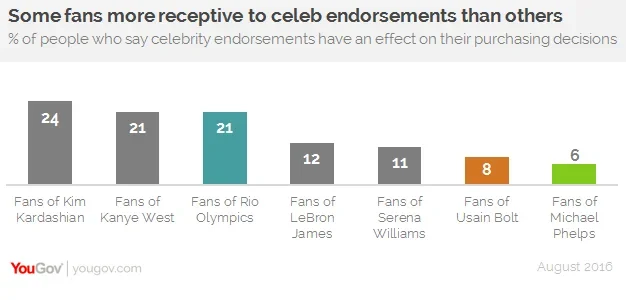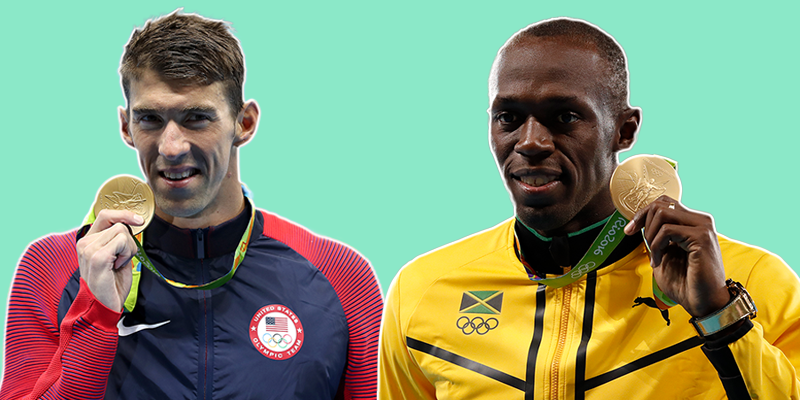As the Olympics draws to a close, having created dozens of new sporting heroes, new data from YouGov Profiles shows that fans of the most famous athletes aren't necessarily swayed to purchase what they are endorsing
Whether you've been following the Olympics in Rio this summer or not, chances are you've heard of American swimmer Michael Phelps, who's won 23 gold medals over the course of his career, and Jamaican runner Usain Bolt, who accomplished the the unprecedented feat of winning three gold medals in three sprinting events across three Olympic Games. They're just that dominant — and just that popular.
Brands have certainly taken notice. Phelps, for example, is sponsored by the sports clothing company Under Armour, and stars in one of its commercials that Adweek deemed "one of the most shared Olympics spots ever." Bolt, on the other hand, has a partnership with Puma that earns him a reported $10 million per year.
While it's easy to see the logic behind such sponsorships (famous person plus clothing brand equals major sales), the results aren't always as clean and neat. According to new data from YouGov Profiles, which tracks people's opinions, attitudes, and behaviors over the long term, fans of Phelps and Bolt aren't as persuaded by celebrity spokespeople as brands might like to think. Indeed, when compared to people interested in watching the Olympic Games in Rio, fans of Phelps and Bolt are actually less likely to allow celebrity endorsements affect their buying decisions.

Compared to the buying influence exerted by other famous muscians, athletes, and TV personalities, the data still shows relatively low scores for Phelps and Bolt. 24% of people who admire Kim Kardashian, and 12% of people who look up to LeBron James, for example, say celebrity endorsements affect them, compared to Bolt's 8% and Phelp's 6%. On a national scale, 13% of adults report that celebrities have an effect on what they decide to buy.

The lesson: Just because someone is famous doesn't mean they're the best value brand to sponsor. While other celebrities might not be as succesful in their respective field, it's their special appeal to certain demographics that counts for brand partners.
One bright spot for those who sponsor either Phelps or Bolt: Fans of the two multiple-medal winners are more likely than the average person to stick with a brand they like. The trick, then, is getting them to notice it in the first place.











